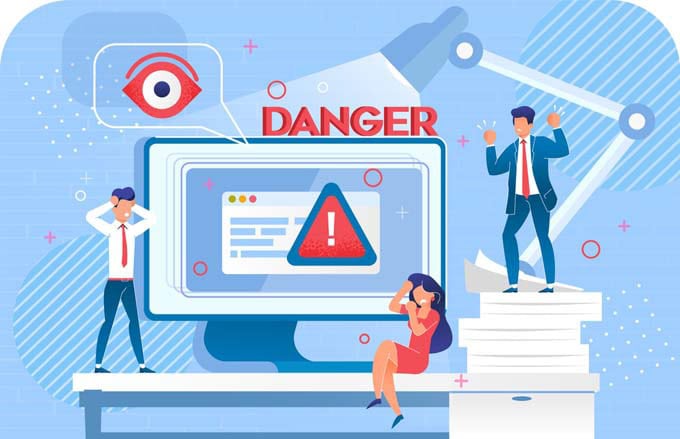Therapy apps with side effects?
It is said that health apps lose two thirds of their users after a few weeks. This is shown by the "EPatient Survey", an annual online survey. However, as further results show, not all users obtain the same information via app recommendations. Users make use of qualitatively different health and advice programs.

The research and consulting firm EPatient RSD in Berlin coaches insurance companies and clinics from German-speaking countries. Already in 2017, EPatient analysts pointed out a divergence in the use of health apps: Less than one in three health app users were still using their app after a few weeks (source: EPatient Survey 2017). On the other hand, a majority of private users resort to non-standard apps for medication, contraception or diet programmes.
Will there possibly be an even greater qualitative gap in the mHealth sector in the future? There are health apps galore. The trend is particularly towards apps for prevention, diagnosis and therapy. According to the latest "EPatient Survey" of May 7, 2018, "coaching apps" are the most widespread. The firm went on to ask survey participants about their willingness to pay for digitally used health services. Apparently, users don't care much about paying for corresponding health app services.
The willingness to subscribe to apps is increasing slightly at a low level, according to the results. On the other hand, many health apps occasionally exhibit update teething problems, which considerably diminishes the general acceptance of and distinction between consumer and advisory apps.
Market and standardization
Many patients are still left alone by the healthcare system in the online world. Shortly before the introduction of the electronic patient dossier in Switzerland (see p. 21) and in the context of regional app providers in the insurance sector, the crucial question is whether MedTech standards at all go hand in hand with the all-too-agile development of the IT market.
In principle, insurance companies initiate "consultation hours" on mobile devices, but Mr. and Mrs. Swiss do not trust the digital health supports at any price. Doctors, clinics and health insurers could hardly (still) exploit the former trust advantage they had before Apple and Google, unless they advertise their products with health aspects.
Touchstones for eHealth app users:
- Trial and Error: One in three participants tried out more than one app to find their ideal app. Chronic patients seem to be more active here. Two out of three app users coped well to somewhat well with the initial operation. Almost one in eight needed help from third parties
- Self-assessment controversy: A two-world dilemma of on-site care on the one hand and the 5000+ sites and apps on the other is testing healthcare systems, citizens and patients. In this context, patients want understandable and relevant digital guidance from their practitioners during and after their therapy.
- Market beats science: The app product names queried by the participants show: Evaluated, good therapy apps (e.g. for asthma, depression, heart and circulation) have not yet sufficiently found their target group in the market compared to mainstream offers.
- Big Data Support: Around 70 percent of app users are willing to share their personal vital and medical data for research purposes. Those surveyed would be more likely to grant data access to clinics and doctors than to health insurers.
Over 300000 health apps are available on the major mobile platforms. And the number is growing all the time. "The regulatory framework exists and is basically sufficient. However, creating transparency is important. The awareness among developers that their product can be a medical device and that it is therefore subject to certification remains," explains Catherine Bugmann, research associate at eHealth Suisse. In March 2018, eHealth Swiss published the "Guide for app developers, manufacturers and distributors". With this, the independent health platform provides an overview of the most important basic terms, processes in the demarcation of lifestyle and medical health apps.
The definition of medical devices is legally defined in the Swiss Medical Devices Ordinance and, as an implementation of the European Medical Directive, corresponds to the pan-European legal framework on medical devices. According to the definition, software can also be qualified as a medical device and thus meet the legal requirements for safety and performance.
Due to the revision of the European Medical Device Directive (see info box on the right), medical devices will be regulated more strictly in the future and medical software will be assigned to a higher risk class in individual cases. In addition to the redefinition, there are other documents that can be used to help make decisions about the assignment of software to medical devices (first and foremost MEDDEV 2.1/6).
Medical devices must be compliant with the legal requirements and undergo a certification process to prove conformity. In order to prove that a product complies with the requirements, standards "may" be used - in the case of harmonized standards, this is then even provided for.
If a software is not a medical device according to the legal definition, it is nevertheless advisable to meet the quality requirements and to observe the standards involved during development.
The doctor as a confidant
However, aspiration and reality still diverge widely in practice. For example, one of the key points in the definition of e-health is the duration of certification. When a health application is published, it can take a year to find all the weak points of the product on offer.
App users may also be critical of unfamiliar applications at first, but over time they would reveal all their personal data: for example, 58 percent of those surveyed cannot initially do anything with the term "online health record". However, when asked whether they would like to have digital access to their medical data at any time, 73 percent answered in the affirmative
In the seventh "EPatient Survey", for which more than 8,400 app evaluations were collected, one thing clearly emerges: the need of the respondents to be able to approach their doctor as a "pilot for digital care solutions" is increasing. Around 70 percent of the "health surfers" surveyed were willing to share their data with their doctor. This is followed by clinics and health insurance companies. By comparison, only five percent would like to deposit their patient data with Apple or Google. Finally, the survey states that the doctor is not a substitute for an app. Three quarters of patients discuss the app recommendations with their doctor, even if the app recommends a "different therapy". No matter how interactive the health apps of tomorrow may become, it is ultimately up to developers to make the user experience more accurate, if not more competent.









